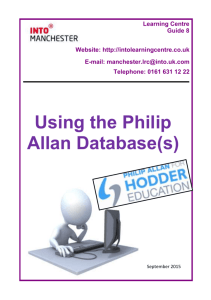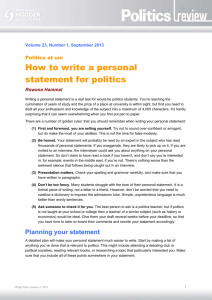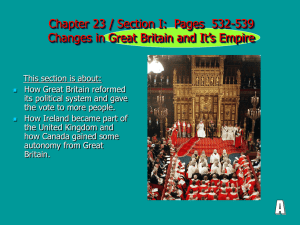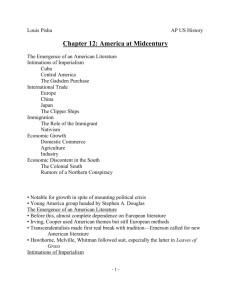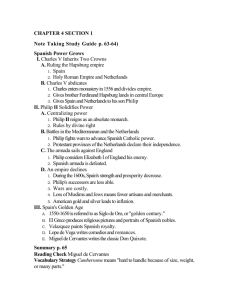Global politics: Is the European Union a failed
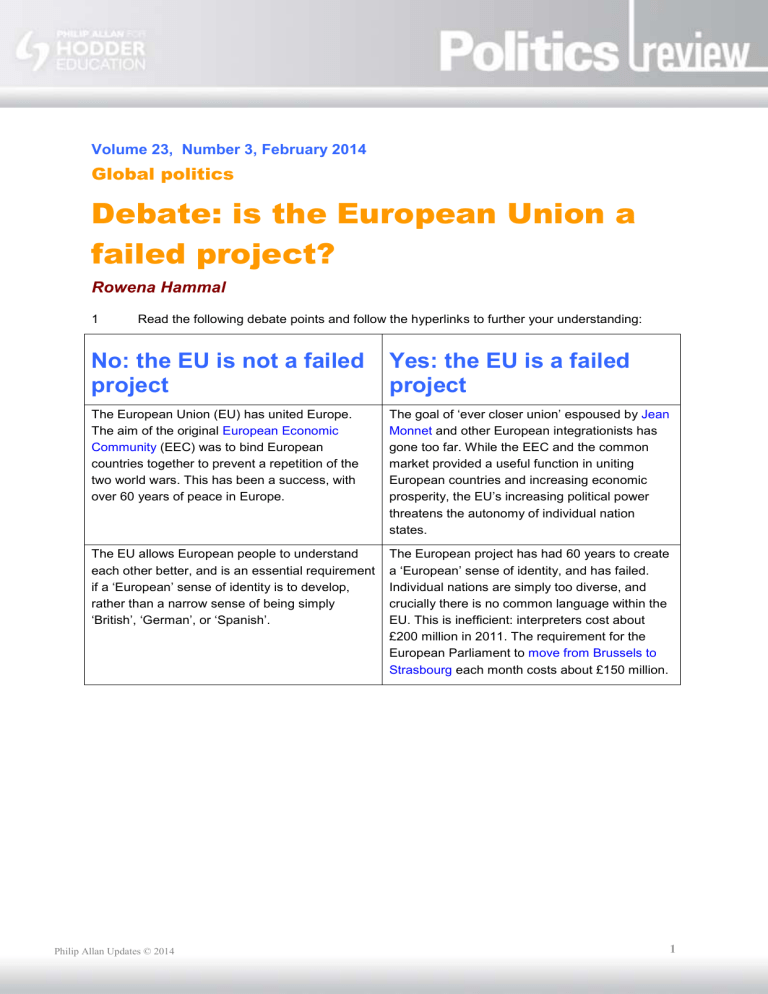
1
Volume 23, Number 3, February 2014
Global politics
Debate: is the European Union a failed project?
Rowena Hammal
Read the following debate points and follow the hyperlinks to further your understanding:
No: the EU is not a failed project
The European Union (EU) has united Europe.
The aim of the original European Economic
Community (EEC) was to bind European countries together to prevent a repetition of the two world wars. This has been a success, with over 60 years of peace in Europe.
Yes: the EU is a failed project
The goal of ‘ever closer union’ espoused by Jean
Monnet and other European integrationists has gone too far. While the EEC and the common market provided a useful function in uniting
European countries and increasing economic prosperity, the EU’s increasing political power threatens the autonomy of individual nation states.
The EU allows European people to understand each other better, and is an essential requirement if a ‘European’ sense of identity is to develop, rather than a narrow sense of being simply
‘British’, ‘German’, or ‘Spanish’.
The European project has had 60 years to create a ‘European’ sense of identity, and has failed.
Individual nations are simply too diverse, and crucially there is no common language within the
EU. This is inefficient: interpreters cost about
£200 million in 2011. The requirement for the
European Parliament to move from Brussels to
Strasbourg each month costs about £150 million.
Philip Allan Updates © 2014 1
The EU is E urope’s source of economic prosperity. The common market allows countries to trade freely with each other, by allowing the free movement of goods, capital, people and services. The EU is also the largest trading bloc in the world, controlling 17.5% of global trade.
Individual national economies are too small to give them real influence in international economic negotiations, whereas the EU negotiates with the
World Trade Organization (WTO) and individual nations on its members’ behalf. The EU is currently discussing the possibility of creating a joint free trade area with the United States , which would help European trade to counter the threat from rising economic powers such as China and
India.
The problems with the Eurozone are clear to see.
The introduction of the Euro allowed weaker economies such as Portugal, Ireland, Greece and
Spain (collectively known as PIGS ) to borrow money cheaply, as they shared a currency with
Germany, the economic powerhouse of Europe.
When the financial crisis of 2008 hit, these countries were unable to meet their debts and were thrown into crisis. They have only been saved from defaulting on their loans and having to leave the euro by EU bailouts. In return, the
Germans have demanded that countries such as
Greece impose harsh austerity measures to bring their budgets under control, which has led to huge animosity from southern Europeans who resent Germany imposing its authority upon them.
The European Parliament is an elected body which allows European citizens to influence the
EU. (See article on the European Parliament in this issue of P
OLITICS
R
EVIEW
.) Transnational party groupings within the Parliament allow likeminded politicians to work together, regardless of their country of origin. Democracy is flourishing in the EU.
The EU has a democratic deficit . Neither the
European Commission nor the Council of the
European Union are directly elected. The
European Parliament only has limited power, and turnout for European elections was only 43% across Europe in 2009, and just 35% in the UK.
(see article in this issue of P
OLITICS
R
EVIEW
).
Britain’s Conservatives have promised first to try to renegotiate British EU membership, and then to hold a referendum on the issue. Many small anti-EU populist parties are making gains across
Europe as voters express their frustration with the
EU.
The EU’s expansion proves its success and popularity. The original six countries that made up the EEC have been joined by many others.
The EU now has 28 members, the most recent being Croatia in 2013.
Watch a short video by The Economist history of EU enlargement.
on the
The EU’s increased size prevents it from functioning effectively. Recent additions to the EU like Romania and Bulgaria have little in common economically or culturally with long-standing members like Britain and France. The large number of members also make it difficult for
European leaders to agree on issues and make deals effectively. A ‘two-tier’ Europe might be one possible solution, allowing some countries to integrate further politically and economically, while less enthusiastic EU members retained more autonomy.
Philip Allan Updates © 2014 2
Immigration from newer member states to richer
EU countries have benefited all concerned, by allowing gaps in the labour market to be filled. In
Britain EU immigration has been shown to have significant benefits for the economy.
The EU has been a force for good, with EU legislation ensuring improved human rights and working conditions across the continent.
The EU is the biggest provider of development aid in the world, and therefore is helping to improve the fortunes of many developing countries.
Citizens of EU states have the right to live and work anywhere within the EU, so countries cannot control how many EU immigrants they receive. Richer countries such as Britain may face pressure on public services due to immigration, and the character of some areas has been changed by large immigrant populations. All this stokes anti-immigrant feeling .
Critics of the EU argue that human rights legislation is too generous, and that employers and businesses are burdened by excessive EU regulations.
The EU’s Common Agricultural Policy (CAP) provides vast subsidies to European farmers
(CAP subsidies make up more than 40% of the
EU budget). This system has been heavily criticised by development campaigners, who argue that it prevents farmers in developing countries from competing with European farmers in global food markets.
2 Consider the possible conclusions given below. Which one do you agree with and why? Write the full version of your conclusion, explaining your argument.
No, the EU is not a failed project because…
No, the EU is not a failed project but it needs significant changes because… Improvements could be made such as….
Yes, the EU is a failed project because…
Rowena Hammal teaches politics at the Portsmouth Grammar School, and is online editor of P OLITICS R EVIEW .
Philip Allan Updates © 2014 3

